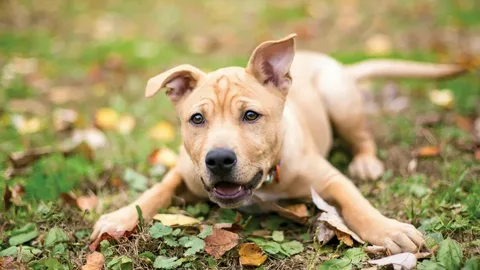Decoding the Canine Code: Understanding Dog Breeds and Their Care Needs
Understand dog breeds to provide the best care for your pet. Dogs come in many shapes, sizes, and personalities. Over the years, humans have bred dogs for different jobs, which is why each breed has unique traits. Knowing your dog’s breed helps you meet their exercise, grooming, and health needs effectively.
Dog Breed Groups and Their Original Jobs
Kennel clubs, like the American Kennel Club (AKC), organize dog breeds into groups based on the jobs they were originally bred to do. This helps us understand their natural behavior:
Sporting Group (Labradors, Golden Retrievers, Pointers, Spaniels): These dogs were bred to help hunters. They are smart, active, and love to please their owners. They need plenty of exercise and mental stimulation.
Hound Group (Beagles, Bloodhounds, Greyhounds, Dachshunds): These dogs track scents or chase prey. They have strong hunting instincts and can be independent.
Working Group (German Shepherds, Siberian Huskies, Rottweilers, Boxers): These dogs guard, herd, or pull loads. They are strong, intelligent, and need structured training and challenges.
Terrier Group (Jack Russell Terriers, Scottish Terriers, Bull Terriers): These small but tough dogs were bred to hunt small animals. They are energetic, independent, and need firm training.
Toy Group (Chihuahuas, Pomeranians, Pugs, Yorkshire Terriers): These small dogs were bred for companionship. They love being with people but can have health problems because of their size.
Non-Sporting Group (Bulldogs, Dalmatians, Poodles, Chow Chows): These dogs don’t fit into the other groups. Their needs vary depending on the breed.
Herding Group (Border Collies, Australian Shepherds, Corgis): These dogs were bred to herd animals. They are highly intelligent, energetic, and need plenty of mental and physical exercise.
Understanding Temperament
Each dog has its own personality, but breed tendencies can help you prepare for their needs:
High-energy dogs (Sporting, Herding, some Working and Terrier breeds) need lots of exercise to stay happy and avoid bad behavior.
Independent dogs (Hound, some Terrier breeds) may take longer to train and need patience and consistency.
Protective dogs (Working breeds) need early socialization and clear training to prevent aggressive behavior.
Companion dogs (Toy breeds) love attention and can get anxious when left alone.
How to Care for Your Dog Based on Breed
Grooming: Dogs with long hair (Golden Retrievers, Siberian Huskies) need regular brushing. Short-haired dogs (Beagles, Bulldogs) need less grooming.
Exercise: Some breeds need more exercise than others. High-energy dogs need running and playtime, while low-energy dogs enjoy short walks.
Training: Some breeds (German Shepherds, Border Collies) need structured training and challenges. Dogs with strong hunting instincts (Terriers, Hounds) should be watched around small animals.
Health: Different breeds have different health risks. Large breeds (Great Danes, German Shepherds) often have joint problems, while small breeds (Chihuahuas, Pugs) can have dental issues.
Diet: A dog’s food should match its size, age, and activity level. Large-breed puppies need a diet that helps their bones grow properly.
The Importance of Training and Socialization
No matter the breed, all dogs need early training and socialization. Introducing your puppy to different people, animals, and environments helps them grow into a friendly and well-behaved dog. Reward-based training works best for all breeds.
Every Dog is Unique
Understand dog breeds to better care for your pet, but remember that every dog has its own personality. Observe your dog, learn their likes and dislikes, and respond to their needs accordingly.
Conclusion
Understand dog breeds to provide the best care for your pet, but remember that no strict rules apply. Learn about their breed, observe their behavior, and meet their needs accordingly. This approach helps you build a strong, loving bond and give your dog the best life possible.

